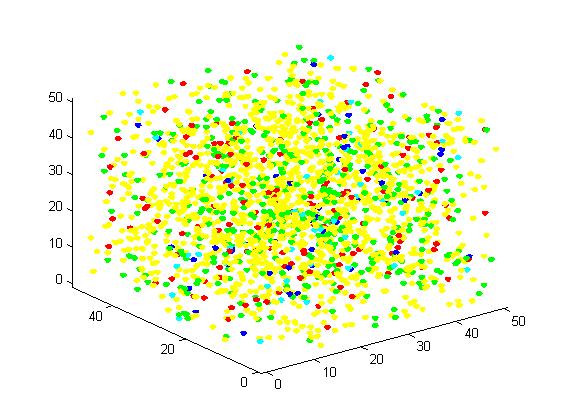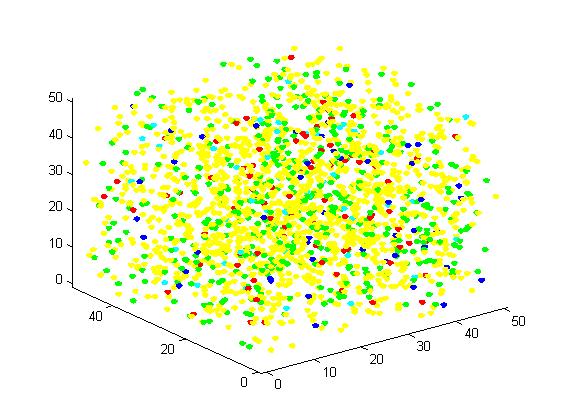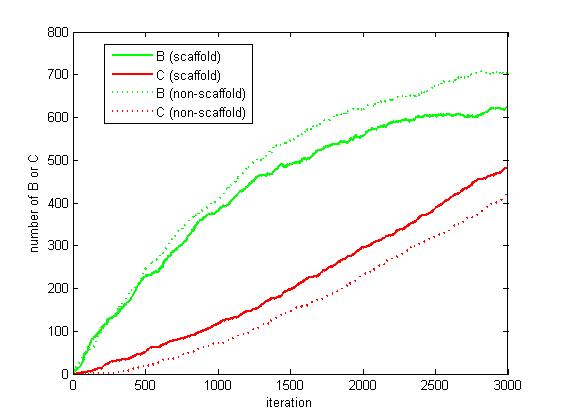Team:ZJU-China/model s2 3.htm
From 2012.igem.org
| Line 116: | Line 116: | ||
{ | { | ||
font-family: Arial, sans-serif; | font-family: Arial, sans-serif; | ||
| + | font-size: 16px; | ||
| + | } | ||
| + | /******************************************/ | ||
| + | p.fig{ | ||
| + | color: #573D01; | ||
| + | padding: 15px 15px; | ||
| + | font-size: 15.5px; | ||
| + | font-family: "Calibri","sans-serif"; | ||
| + | align: justify; | ||
| + | } | ||
| + | p.ref{ | ||
| + | color: black; | ||
| + | padding: 15px 15px; | ||
| + | font-size: 15.5px; | ||
| + | font-family: "Calibri","sans-serif"; | ||
| + | align: justify; | ||
} | } | ||
Revision as of 14:59, 25 October 2012
A large scale simulation
The initial state is as following:
Edge of cube: 50 units
The number of A: 2000
The number of B: 0
The number of C: 0
The number of E1: 50
The number of E2: 50
The distance between E1 and E2 for RNA scaffold: 2 units
After 1200 iterations, the scaffold and non-scaffold results are as following:
Scaffold Non-scaffold
The number of A: 1417 The number of A: 1470
The number of B: 436 The number of B: 451
The number of C: 147 The number of C: 79
The number of E1: 50 The number of E1: 50
The number of E2: 50 The number of E2: 50

Figure 4. Result of scaffold system for large scale simulation. After 1200 iterations, there are 436 B and 147 C.

Figure 5. Result of non-scaffold system for large scale simulation. After 1200 iterations, there are 451 B and 79 C.
Comparison between scaffold system and non-scaffold system
As the iteration increasing, the number of A is decreasing and the number of B and C are increasing. We record the number of B and C for both scaffold system and non-scaffold system as iteration grows to watch the reaction rate of pathway (i.e. the number of C).

Figure 6. The number of B and C as iteration grows.
From figure 4.5.6, it is obvious that the number of C for scaffold system is more than that for non-scaffold system and the number of B for scaffold system is less than that for non-scaffold system. This phenomenon can be interpreted as that the probability that B meets an E2 is highly increased since their distance is closer. Therefore, it is safely to draw a conclusion that the reaction rate of pathway has been speed up because of the scaffold bringing two enzymes closer.
 "
"